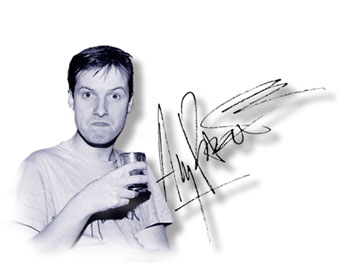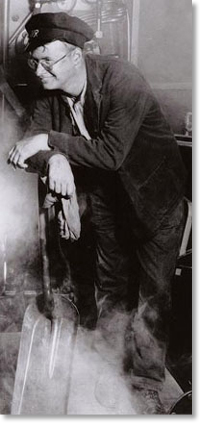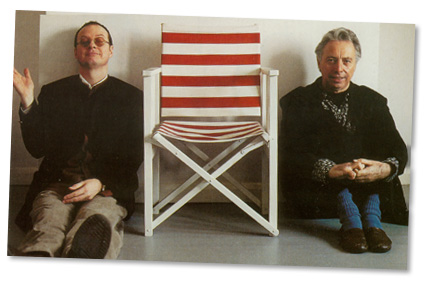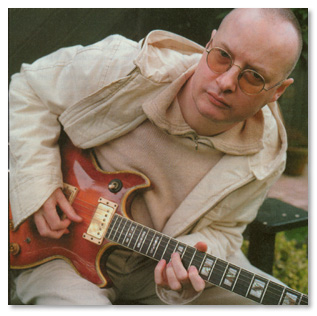|
Andy Partridge, XTC's main songwriter, has long been recognized as one of Britain's finest lyricists. A name often bandied about in the company of: Elvis Costello; Ray Davies; John Lennon and Paul Weller. Andy Partridge writes songs influenced by his love-hate relationship with his hometown, as well as songs celebrating love and sex in all of its myriad forms. Over the years his craft has matured from three minute new wave masterpieces - "This Is Pop," "Are You Receiving Me?", "Senses Working Overtime" - and the more pastoral "Love On A Farmboy's Wages," "Dear God" (their breakthrough hit in the US), and the more recent "Harvest Festival." |
|
Andrew John Partridge was born in a naval hospital in Malta in November 1953. At the age of three his parents, John and Vera, were posted back to the UK, first to Portsmouth - later moving to a postwar council estate in John's home town of Swindon. A shy boy, close to his mother - his father spent many months of the year away with the Royal Navy. Andy did reasonably well in school and especially enjoyed art. He loved music and soon became fascinated with The Monkees. He won a "Draw A Monkee" competition in their fan magazine, cut his hair like Peter Tork's and took to wearing fringed jackets and love beads. He carried an acoustic guitar around with him, even though he could barely play a note... |
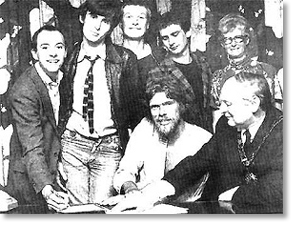 |
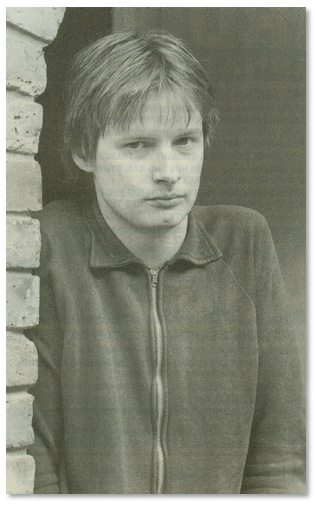 |
"It acted like a magnet for girls," he said, "especially in secondary school. Of course you were in deep shit when they asked you to play a song - because I couldn't." With his best friend Steve Warren, Andy fantasized about becoming a deejay or pop star. The two would get together in Andy's bedroom and host made-up radio shows, using a gramophone and reel-to-reel tape machine that Andy bought with his "Draw A Monkee" winnings. He left school at fifteen and a half. With few qualifications to speak of he followed the time honoured route of all wannabe rockers by enrolling in art college. His playing was improving, using every available break to strum along to records in the common room, he soon earned the nickname Rocky through his ability to play the guitar part to The Beatles' "Rocky Raccoon." After leaving college, Andy worked his way through a succession of unsuccessful bands while holding down a job in the local evening newspaper's mailroom. He formed a group, Stray Blues, which managed to play three pretty dreadful gigs before they disintegrated. Unperturbed, Andy went on to form Stiff Beach with friends Spud Taylor and Tony Climpson, and as the band's line up evolved (both Spud and Tony left, replaced at various times by Steve Warren, Paul Wilson, "Nervous Steve" and Dave Cartner) so did their name - mutating into Tongue and Clark Kent before finally settling on Star Park. |
|
Towards the end of 1972 Andy came across Colin Moulding at Kempster's Music Store in Swindon. Colin's first bass came from the shop and had previously belonged to Andy's former Stiff Beach colleague Spud Taylor. The two had often crossed paths in the past and were soon talking about their musical ambitions. Partridge had just abandoned the first version of Star Park and Colin had yet to play with any form of professional act, but the two of them soon hit it off. On rare days off both could be found in Kempster's, picking and strumming away while feigning interest in actually buying anything. Said Colin: "I'd known about Andy for a long time. He was the type of person who drew attention to himself wherever he went. If you were a musician in Swindon you were bound to come across him sooner or later." Within a couple of months the two of them, plus Terry Chambers and Dave Cartner, started to rehearse together as the new incarnation of Star Park. The new group played their first gig together in May supporting Thin Lizzy at Swindon College. Many of the audience were baffled at their attempt to affect a Glam Rock image, with most of their outfits handmade from jumble sale bargains, stolen from Andy's Mother's wardrobe or pasted together from cardboard and tin foil. |
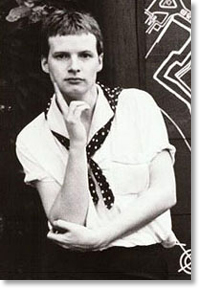 |
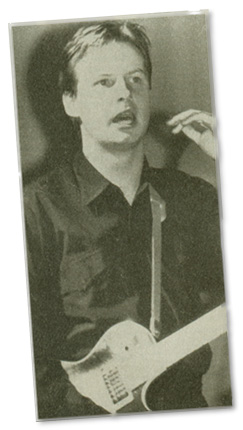 |
Yet regular gigs followed - they supported heavy rock outfit Budgie and on May 25 headlined their own show at the Swindon Arts Centre. The band were unhappy with their name. Andy was convinced that they needed something more "flash" and urgent, and so in July they became Zip Code and the Helium Kidz before shortening that to the simpler Helium Kidz. At this point Andy was writing the vast majority of the group's material, and his fascination with glam rock (in particular The New York Dolls) and space travel flavoured their set. Songs with titles like "Saturn Boy," "Jet Shoes" and "Teenage Planet" spilled out of him. As the group started to play to a wider audience they picked up a new vocalist (Steve Hutchins) but his "mockney" style and transatlantic accent were at odds with the band's sound. However, Hutchins had a proper manager who claimed he could get the group dates outside of Swindon and arrange recording sessions. The band were going nowhere fast. Hutchins did not fit, and the more cosmopolitan audiences of London thought that the "Swindon Dolls" version of glam rock was laughable. Those early demos show how poorly Hutchins' vocals fitted with the rest of the group. After much cajoling by the band, Steve Hutchins was out and Andy Partridge took over. |
|
Reduced to a three piece after Dave Cartner could not attend a recording session at Pye Records, the band approached local guitarists - including one Dave Gregory - but auditions did not go well. Finally they settled on a young keyboard player by the name of Jon Perkins, and another change of name - to XTC. Over the next six months the group's fortunes changed radically. They picked up a new manager and started to attract interest from record companies. The Punk and New Wave scene was emerging and A&R men were falling over themselves to sign up anyone different or quirky. Partridge was writing weird, wired little numbers with titles like "Science Friction," "She's So Square" and "Neon Shuffle." Moulding too started to contribute songs to the band, although his first attempts were little more than pale imitations of his friend's style. The group's sound changed dramatically and constant gigging made them tighter. Several other recording sessions followed and the band's momentum was building steadily when Jon Perkins suddenly quit to spend more time with his other group, the Stadium Dogs. |
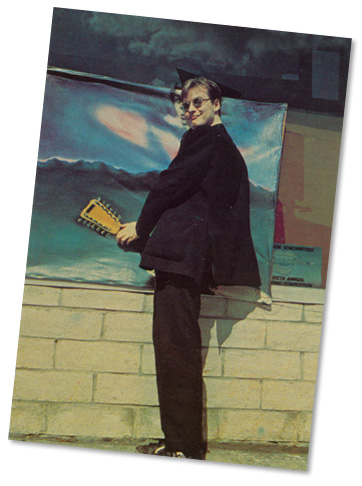 |
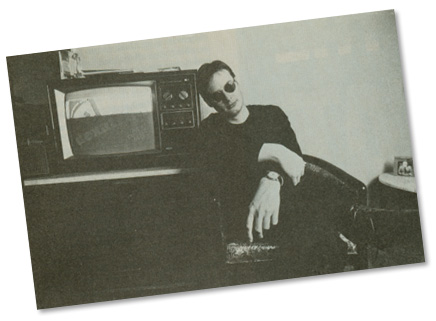 |
In desperation Andy answered an advert in the John Holmes Organ Centre for a keyboard player looking for a band. That evening after Colin, Andy and the keyboard player had got uproariously drunk together, Barry Andrews joined XTC. Work continued to improve, with the buzz about the band quickly growing. Two sessions for CBS came and went - the label looked close to signing them but their Manager Ian Reid held out in favour of a better deal. In July the band finally signed to Virgin Records. No sooner had they cut a deal - they were rushed into the studio to record their first release. 3D EP, featuring the tracks "Science Friction," "She's So Square" and Moulding's "Dance Band," appeared to rave reviews - but sales were hampered by the release only being available on twelve inch. |
|
From here it should have been a smooth ride, but things were not well within the band. Andrews quit after a lengthy US tour, following the release of their second LP Go 2, and Partridge called on old friend & guitarist Dave Gregory to fill the gap. Andy was insistent that Dave should join. What he did not want was another Barry Andrews in the group. There had been a lot of problems over Andrew's insistence that they record several of his songs for the second album, and Partridge felt that the choice of material clashed with the rest of the group's offerings. Gregory "officially" became a member of the group on March 5, 1979. A slew of great singles followed. Gregory's first recording with the group - "Life Begins At The Hop," also proved to be their first UK chart success. Not long after that - Colin Moulding's "Making Plans For Nigel" opened their third album and became their first major hit. Andy Partridge quickly became something of a media star in the UK. His quick-fire wit was put to great use in interviews, making many radio & television appearances, both with the band and as a solo guest. His Agony Andy radio spots became the stuff of legend, and he even fronted a pilot for a children's TV game show. |
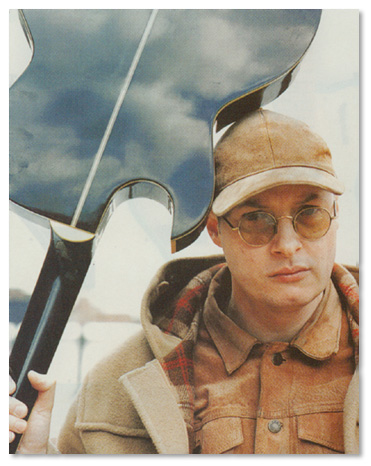 |
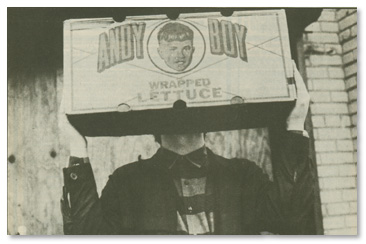 |
He also found time to release his first solo effort, Take Away/The Lure Of Salvage, a dub album based on earlier XTC recordings. However, incessant touring was taking its toll on him. Prescribed Valium as a twelve year old, he had recently been forced to come off the drug - his wife threw his supply down the toilet. He started to experience stage fright, culminating in a frightening episode on stage in France in 1982. To support their first top ten hit "Senses Working Overtime," and album - English Settlement, the band undertook another massive world tour. Partridge had misgivings from the outset, but the group's manager and record company made it clear to him that he had to go through with it. Tickets were selling out. How could he even think of letting the other members of the band down? |
|
Then one night in Paris it came to a head. On March 18, 1982 the group ran on stage and fired in to "Respectable Street," a minor hit from the previous year. Less than a minute later it was all over. Partridge was a mess, staring vacantly around, unsure where he was. He bumped into the microphone, forgot his words, threw down his guitar and ran back off. The following UK dates were postponed, but the group was already booked into a lengthy US tour. He managed to get through a set in San Diego on April 3, but that would be the last time that a paying audience would see XTC live. After they quit touring, the band's fortunes changed once again. On the brink of becoming massive worldwide, Andy's breakdown seriously damaged their career prospects. Partridge himself felt a massive sense of relief: "I'd been severely physically and mentally dented by the continual touring process and what was happening on the business side," he told Neville Farmer in the book Song Stories. "I have to be brutally honest, I don't think that I was cut out for pop stardom." Colin, Dave and Terry loved playing live and found the change of pace difficult to adjust to. During sessions for their next album, Mummer, Terry Chambers walked out - never to return. To this day, XTC have not replaced him, relying instead on a series of session drummers. |
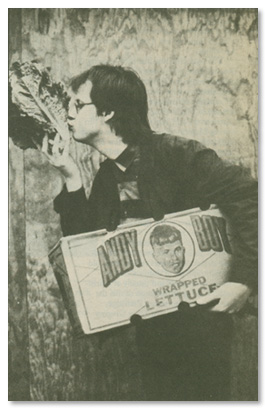 |
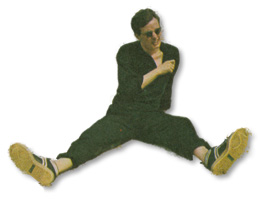 |
|
Partridge and Gregory soon became in demand as session musicians and producers. Partridge himself has worked with a wide range of performers including: Joan Armatrading; Ryuchi Sakamoto; The Residents; Voice Of The Beehive; Doctor And The Medics; Blur; Terry Hall and Lloyd Cole. Every 18 months or so would see a new album, the band content to continue making music at their own pace. All that changed in 1986. College radio, a massively influential media in the United States, had picked up on a track tucked away on the B-side of their recent single, "Grass." "Dear God" was Partridge's missive against organized religion, a track he was not overly happy with and one which they had decided not to include on their Todd Rundgren-produced Skylarking album. "Dear God" proved to be the track that finally broke XTC in the States. Their American record company - Geffen - were furious that the track had not made it on to the album and quickly repressed it, dropping the magical "Mermaid Smiled" to squeeze it on. Released as a single in its own right it quickly picked up mainstream radio play and helped to catapult the album into the charts. Not everyone was happy, though. A Florida radio station received telephoned bomb threats, should the song be played again. Worse, an 18 year-old student in New York State held the school secretary at knifepoint, demanding that "Dear God" be broadcast over the school's tannoy system. |
|
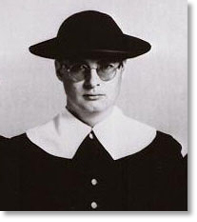 |
The controversy did the band no harm at all. In fact, Geffen wanted a more "American sounding" follow up as soon as possible, financing the group's temporary move to California to record the follow up album Oranges And Lemons. Oranges And Lemons was a massive hit in the US, and the band's biggest selling album worldwide in a decade. Invited back over to do some promotional work, the three members undertook a short tour of radio stations and played a half-hour acoustic set at different locations across the country. This was the closest that the band had been to any kind of tour in seven years. Once again their star was in the ascendant. Partridge even hinted that they might be cajoled into doing a few "proper" live dates, and the first single from the album "The Mayor Of Simpleton," provided them with a small domestic chart hit. Surely this time they had got it right? |
|
Not quite. Partridge managed to upset most of Canada at an awards ceremony, and claimed he was misquoted in a report in which he said: "I fought not to do it - and I might have gotten out of having to present those useless pieces of metal. We may not even go to the dinner - but they'll throw us out of our hotel room unless we go'. Back in the UK, the search was on to find a producer for their next album. Partridge has always had a difficult ride with producers, but the rest of the band felt they needed a second opinion - anything to stop XTC from becoming the Andy Partridge show. Moulding had previously walked out on the group during the Skylarking sessions because Partridge was hypercritical of his playing, only to be begged to return. Close friends for many years, both Moulding and Gregory knew that Partridge had the occasional control freak moment, but usually ignored it. After all, most of the material was his. He was allowed to get a little precious occasionally about his babies. |
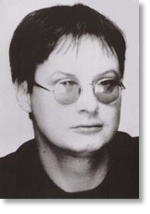 |
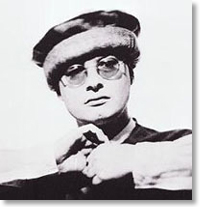 |
But problems with producers were nothing compared to the escalating troubles with Virgin. The company, shorn of its founder Richard Branson, was now part of EMI and they wanted results. XTC's contact at the label was less than enthused with the demos that Andy and Colin had presented him and steadfastly blocked their recording. Finally they brought in tried and tested producer Gus Dudgeon to helm the sessions, but the producer and artist fought often over the recordings - eventually leaving Dudgeon no option but to ban Partridge from the studio during the final mixing. Tempers flared, Dudgeon was sacked from the job and Genesis producer Nick Davis was brought in to finish it off. Happy at last - with what the band thought was their strongest set of songs to date, they sat back and waited for the EMI machine to get behind the promotion of Nonsuch. And nothing happened. |
| The first single lifted from the set, "The Disappointed," achieved little and the follow up fared worse still. But the biggest blow for Partridge came with the release of the third single from the album, "Wrapped In Grey." Discs were pressed, sleeves designed, catalogue numbers allocated and copies sent out to radio stations. Andy felt confident that the single would be a huge hit. Then, for some incalculable reason, Virgin and EMI decided to recall the disc, and destroyed all of them. Less than a handful of seven-inch and CD single copies still exist to this day. Partridge was furious. "It was the last straw in making me want to leave the label," he said. "I remember hearing this on the car radio, driving across Golden Gate Bridge and feeling really proud." |
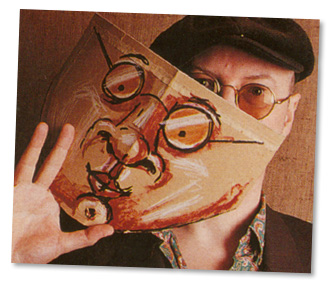 |
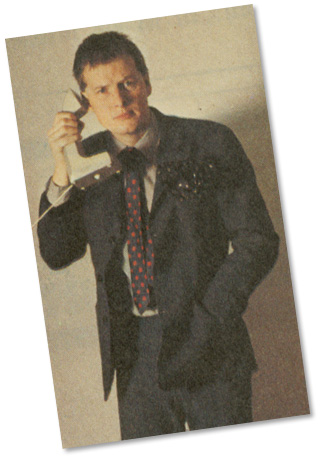 |
There had been a tremendous amount of bad feeling between the group and the company for some time now. For an act to be so revered and at least partially successful, it rankled them that they were always broke. XTC attempted to re-negotiate their contract with Virgin, but the company would not budge. Andy offered them a new album of bubblegum pastiches, similar in style to their earlier successes under the pseudonym The Dukes Of Stratosphear, but the company refused to release it. Unable to work in these conditions, XTC asked if they could leave the company and cut a deal somewhere else - but again Virgin refused. In desperation XTC went on strike. For six years. Partridge's fragile state of health took a further knock when, during a rather messy and painful divorce he suddenly was left partially deaf from an inner-ear infection. He had married long-term girlfriend Marianne Wybourne in August 1979, and the couple have two children - Holly and Harry. The stalemate dragged on. Yet all the while, interest in the band continued. New compilation albums appeared in Britain, France, Japan and America; Robbie Williams recorded a version of "Making Plans For Nigel;" the Crash Test Dummies' had a hit with "The Ballad Of Peter Pumpkinhead;" Partridge was approached by Disney to submit songs for the soundtrack of James And The Giant Peach; the BBC released two albums of live and radio-session material and a plethora of websites sprang up. |
|
In 1994 Partridge released Through The Hill, a collaboration with Harold Budd on Budd's own All Saints Records. Only two XTC tracks appeared during the period: "Cherry In Your Tree" on the soundtrack to children's television show Where In The World Is Carmen SanDiego and Colin's "The Good Things" on the XTC tribute album A Testimonial Dinner. Finally, Virgin gave up and allowed the band to leave. Several labels, including Richard Branson's new V2 project, were interested but, disillusioned with the way they had been treated over the years, the group decided instead to form their own - Idea Records. Setting up a licensing deal through Cooking Vinyl in the UK and TVT in the States, they went back in to the studio to record the comeback. |
|
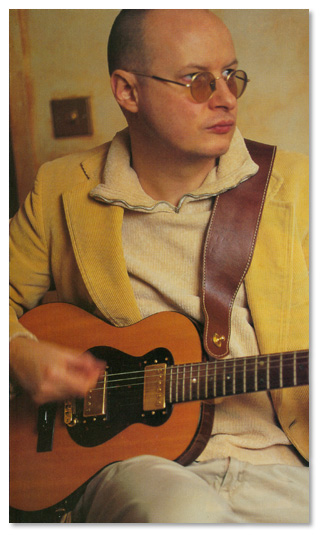 |
Finally, after two decades in the business, they were in charge. Partridge and Moulding brought close on 30 new songs to the sessions, with Partridge mooting the idea of a double album, part acoustic/orchestral and part electric. Neither Moulding nor Gregory were happy with the idea, preferring a punchy single album to reintroduce them to the world. With Partridge fighting his corner, Dave Gregory suggested that he record some of the less-XTC sounding tracks for a solo project. Andy glared at him furiously. The strain in their relationship permeated the sessions. Dave is an accomplished orchestral arranger and had done an incredible job scoring much of their earlier work, but in the six years between records Andy had not only taught himself how to orchestrate but had definite ideas of how he wanted his songs to sound. Partridge found Gregory's negativity wearing, and Dave in turn became more and more frustrated at the lack of input he was having. Then one day in early 1998, during a particularly tense session, Andy suggested that Dave take some time off from the sessions. The following day, Gregory turned up at Moulding's house with his letter of resignation. Reduced to a two piece, Partridge and Moulding continued to work on the project, eventually deciding to release the songs as two individual albums - one containing the more orchestral and experimental pieces and a second guitar-driven album. The first of these (still featuring Gregory), Apple Venus Volume One, appeared in March 1999. |
|
Apple Venus was a revelation. The seven years that had passed between its release and that of its predecessor Nonsuch had been, incredibly, well worth the wait. The album was packed with lushly orchestrated works that could have come from no-one else but XTC. Partridge's songs were mature and beautiful in places, bitter and painful in others - classic XTC. Praise was heaped upon the record. Rolling Stone said that it "ranks with XTC's best" and Mojo called it "effortlessly pleasurable," going on to say that the duo "could show many a 25-year old how a great album ought to be constructed." The album was quickly followed by the equally well-received Wasp Star - Apple Venus Volume Two. |
|
© Darryl W. Bullock and Optimism's Flames
